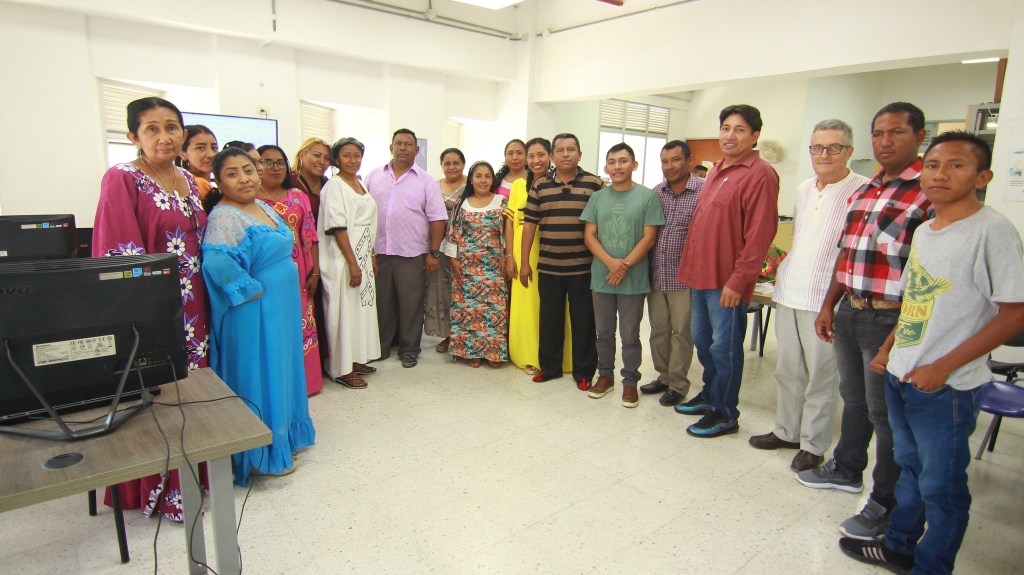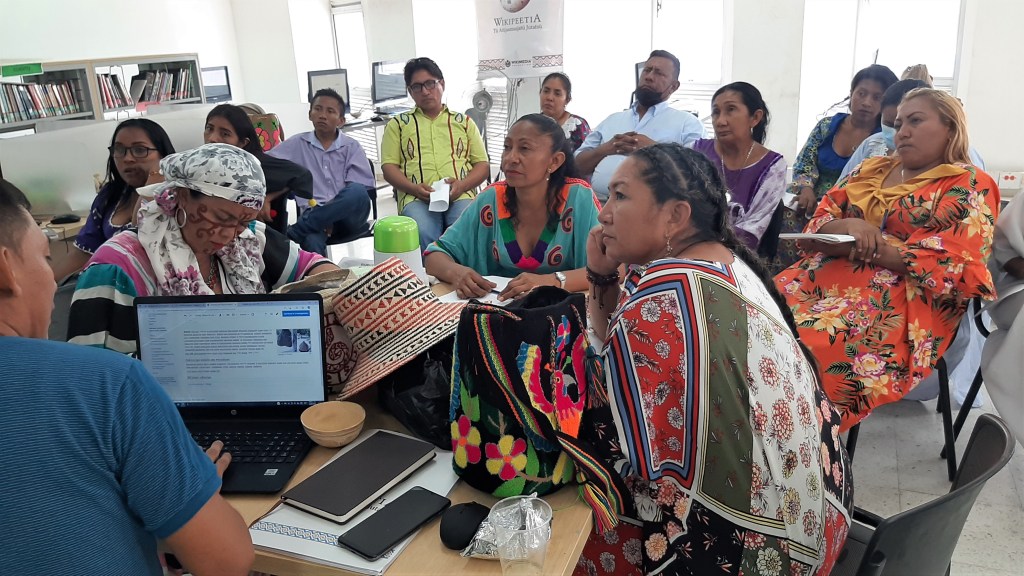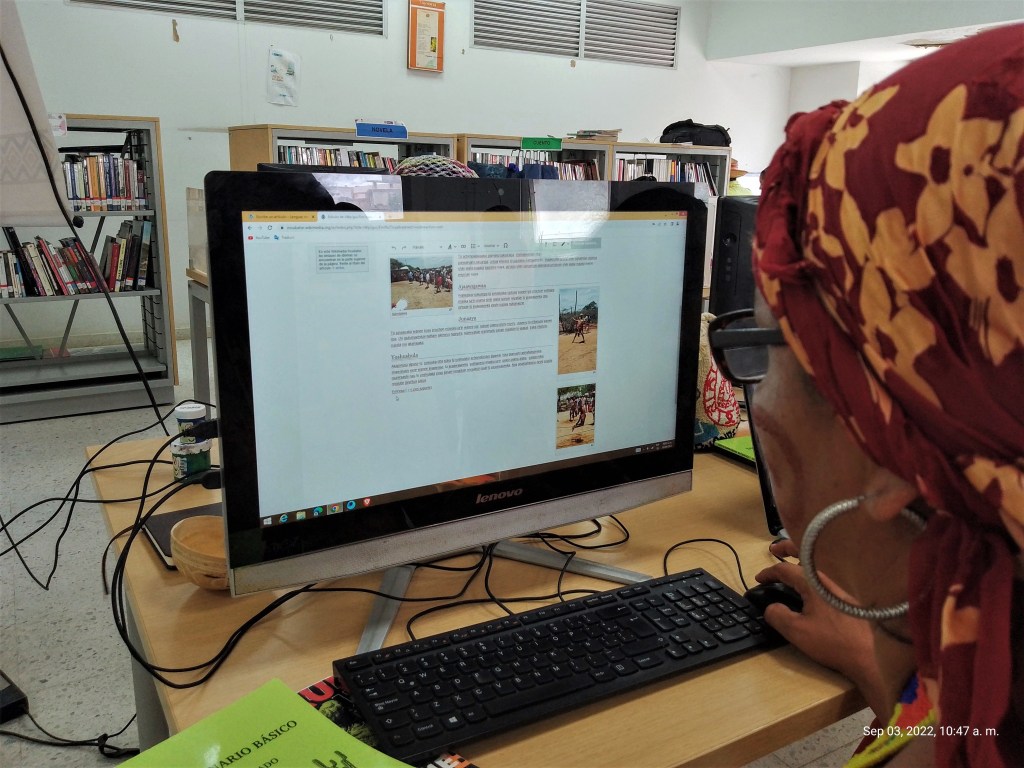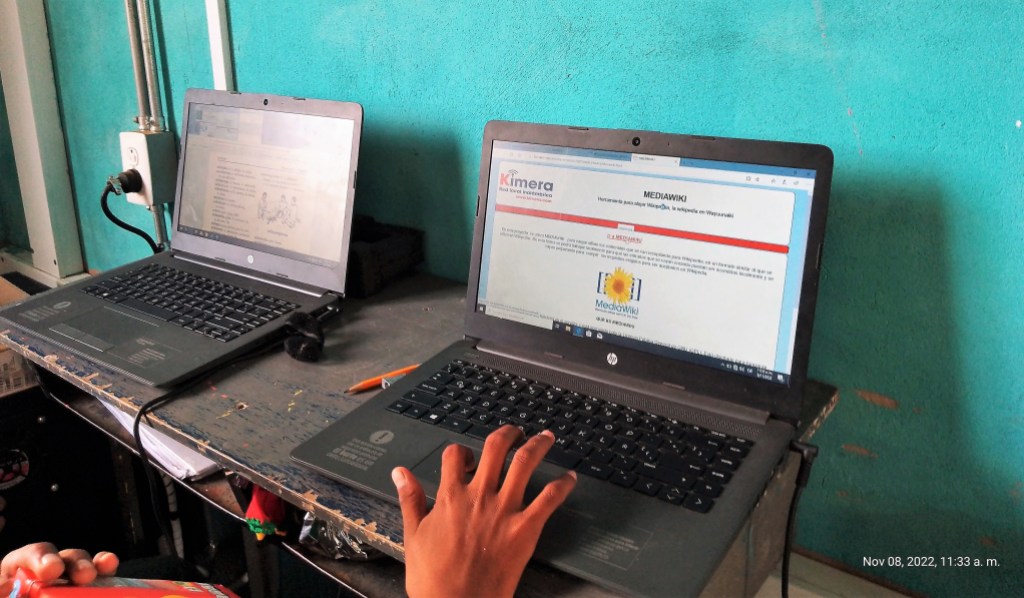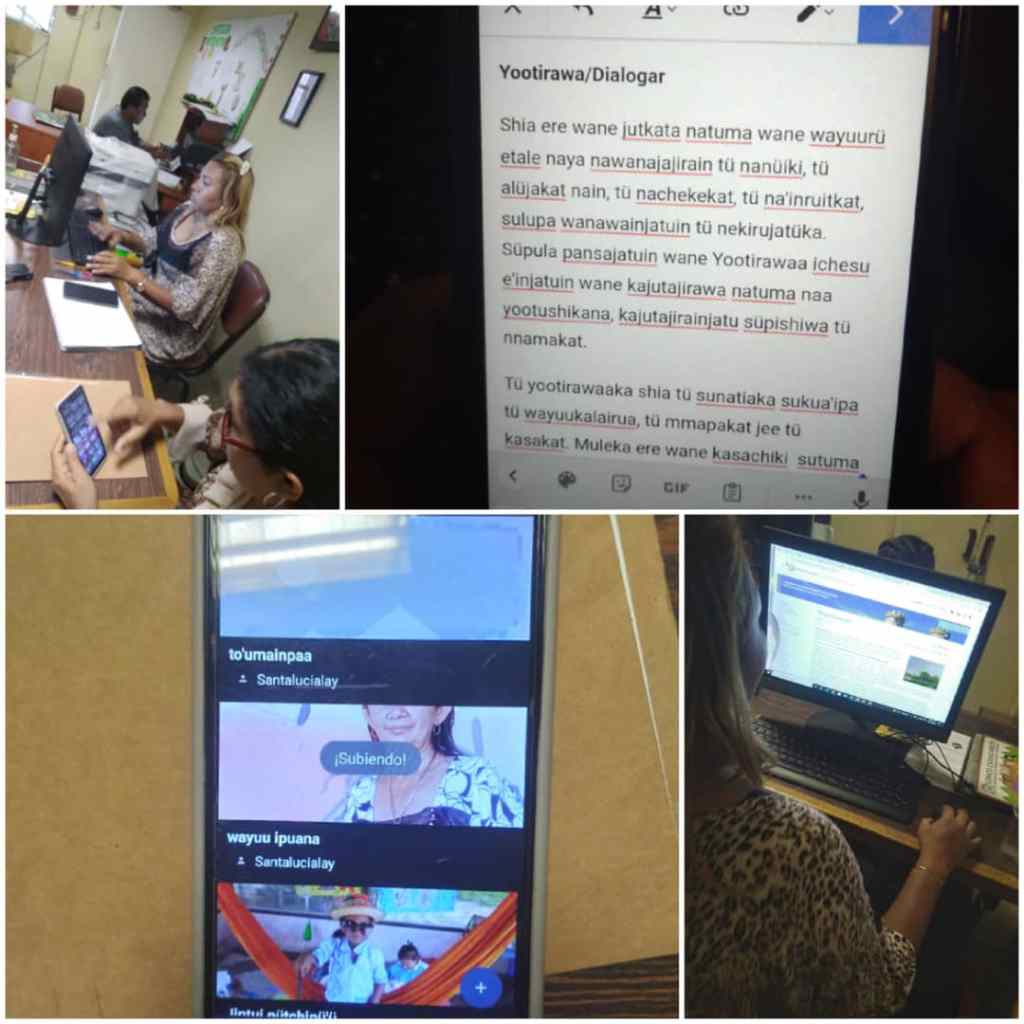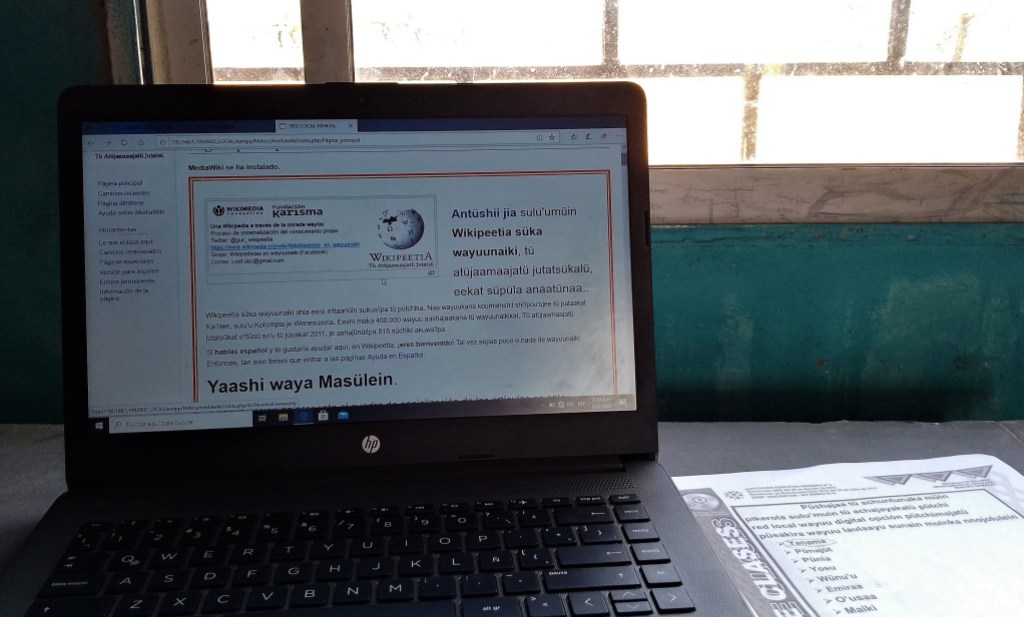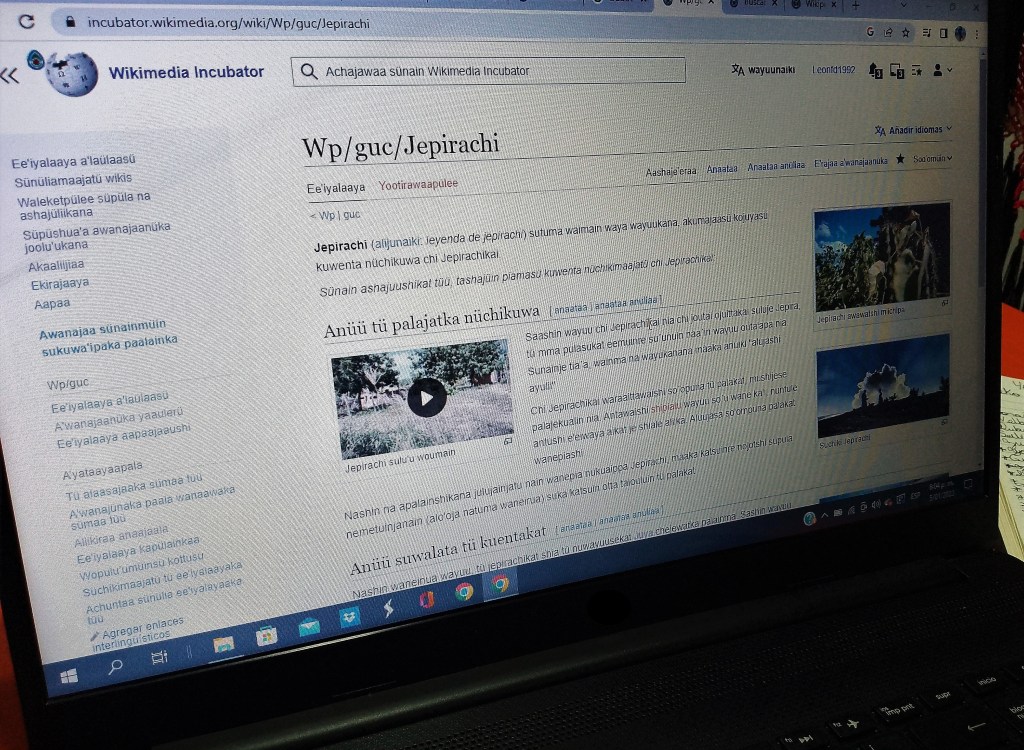New technologies and electronic devices are reaching indigenous communities, which entails a major flow of information in dominant languages and thereby, a lower use of indigenous languages in scholar or work-related processes, besides the scarce information and misrepresentation of indigenous matters in the media.This shows the impact on representation and perception of identity for children, adults and young people that don’t see themselves or feel as a part of knowledge development.
On that basis, it’s worth saying that indigenous peoples are called to devise plans and strategies to strengthen their identity by using digital media in order to maintain and represent themselves according to their own way of understanding themselves in the world.
Through contemporary history, local peoples and underrepresented communities have witnessed how their principles, values and knowledge were described and idealized by people outside their culture that developed far from reality depictions that harmed the identity of several ethnic groups and local peoples. These depictions portrayed the uneven process originated by interethnic relations of asymmetrical nature that native peoples were involved in.
However, the advancement of the world and the development of technology brings an opportunity for indigenous peoples to represent themselves in these digital spaces, which despite being intangible spaces, somehow manage to move thoughts and ideas that become tangible. This becomes an advantage that can be used to strengthen languages and processes of cultural reaffirmation, so the internet won’t be a space where indigenous peoples are invisible, but becomes a platform where they can share their version of history.
Under this logic, the Wayúu people, inhabitants of the north-western region of Venezuela and north-eastern Colombia– in La Guajira –have started to systematize their knowledge and values through digital media and platforms such as Wikipeetia and Wikipütchimaajatü süka wayuunaiki. This aims to strengthen their identity through reading about their culture, based on the importance of systematizing information and free access to it. It is an important task to reach schooled sectors because there is a large student population at different levels in the Wayúu community, which implies a process of homogenization that is weakening the use of their mother tongue.
Wikipeetia and Wikipütchimaajatü süka wayuunaiki are part of the Wikimedia projects, which seek to encourage the participation of local groups and languages in digital media. For Wayuunaiki language, there are two projects approved in August 2008 that were hosted in the Wikimedia Incubator. They will remain in the incubator until certain criteria are met for launching them as Wikipeetia and Wikipüchimaajatü. It is worth noting that there are two projects in the incubator, on one hand there is Wikipeetia as the version of Wikipedia on Wayuunaiki, and on the other Wikipütchimaajatü as the Wayuunaiki version of the Wiktionary.
Both projects have remained active due to the contributions and editions of several Wayúu users. Since 2011, they have been writing and uploading content to nurture the encyclopedia for the Wayúu. On the other hand, the project has received support from important institutions that have been allies in growing the group of editors such as: Wikimedia Venezuela, Wikimedia Colombia, Wikimedia Argentina, Centro ISUR and the KARISMA Foundation.
With the support of several allies in the region and in order to territorialize Wikipeetia and Wikipütchimaajatü süka wayuunaiki with the grassroots communities, in July 2022, Wayúu editors decided to create a user group based in their local communities, so they bring this written content to their territories and schools. The user group is called: Wayúu Wikimedians.
Some of the strategies proposed by the user group are:
- Increasing contact with local communities in their own territories.
- Listening to editors’ voices and their needs.
- Combining strategies with teachers in several areas of La Guajira.
- Increasing the engagement of Wayúu activists and students as subjects who live the culture in their daily lives.
- Getting closer to communities to bring content through local networks and kiwix.
- Getting to know the experiences of the teachers who will use the contents in their classrooms.
The aforementioned strategies were implemented once the user group was created with Wikimedia Foundation support. It was possible to summon 25 people with diverse occupations such as teachers, activists, students and leaders living in their territories and Wayuunaiki speakers. This group is supported by Wayús from both Colombia and Venezuela. This formation was possible in the framework of the project: A Wikipedia through the Wayúu look, a project that was raised to operate from July to December 2022 and that so far has managed to sustain the editing process for 6 months.
Regarding the proximity to the communities, from the creation of the user group and with previous contact of teachers participating in the project “Red Wayúu Digital”, it was possible to go to different schools and rural communities such as Jalitpa’a, Masülein and Taloulu’uma’ana in the Colombian Guajira. From here it was possible to perceive the reality and listen to the opinions of the community of teachers, who in general, mentioned the lack of cultural information with a different approach, especially from new digital media, to which many of the Wayúu youth, adults and children are exposed. This leads Wayúu people to see the world according to technological devices and media content, therefore, they end up believing any concept that is portrayed as superior to the local culture.
Wikipeetia süka wayuunaiki has managed to reach areas such as Masülein, Jalitpa’a, Taloulu’uma’ana, Paraguaipoa, Nazareth and Ishottolu’u on both sides of La Guajira. This was possible thanks to “Red Wayúu Digital”, where a version of MediaWiki is installed, adapted and filled with information found in the Wikimedia Incubator. At the same time, it was possible to bring Spanish Wikipedia with KIWIX, so it can be consulted by the students. It is worth noting that once Wikipeetia is released from the Incubator, it can be downloaded and brought to KIWIX like the other Wikipedias.
Wayúu Wikimedians and its members recognize the importance of getting involved in the process of reaffirmation of identity. Since the advancement of the world and the expansion of technologies and external information are disrupting and changing habits and values within the same community, a way to face this homogenizing process is to create information with the local concept known by the community. For example, the use of medicinal plants as opposed to the western pharmacopeia, which sees health as a business. Likewise, the concepts of local economy and the dependence that a globalized world proclaims, where consumerism is idealized as personal fulfillment and satisfaction.
Based on the above, the articles developed by the user group revolve around local knowledge, traditional medicine, values and principles, education and other issues inherent to the community first and foremost. It is also worth noting that the articles in Wayuunaiki for Wikipeetia have a particularity typical of indigenous languages– the oral component, as they are languages that are starting to be written as in the case of Wayuunaiki. This is the reason why most of the articles are accompanied by audios and videos that reflect the orality of the language. Also as a way of perpetuating the sound of the voices in the articles. Here is an example of an article written by this group of teachers: Jayeechi, Wayuu song.
Wikipeetia süka wayuunaiki and Wikipütchimaajatü are worked by the Wayúu user group with regional partners support. Its operation seeks to show the scope that cultural contents can have and how they can be articulated with the community of teachers so they make use of them in their educational plans and strategies.
Likewise, this works as an invitation to other indigenous groups to strengthen their languages in this new era of history. What happened with the development of the printing press and books, where only the privileged and ruling classes of the time had access to it, must not happen again. Wayúu Wikimedia, the Wikipeetia and Wikipütchimaajatü projects are framed by the beginning of the decade of indigenous languages 2022-2032 decreed by the UN. Also by the 2030 strategies promoted by the Wikimedia organization.
Special thanks to
Wikimedia Foundation, Wikimedia Venezuela, Wikimedia Colombia, Wikimedia Argentina, Internet and Society Center from Universidad del Rosario and KARISMA Foundation. Also to each editor being part of this group. And to the Miguel Ángel López Library in Maicao and Ranchería Masülein for their hospitality.

Can you help us translate this article?
In order for this article to reach as many people as possible we would like your help. Can you translate this article to get the message out?
Start translation
